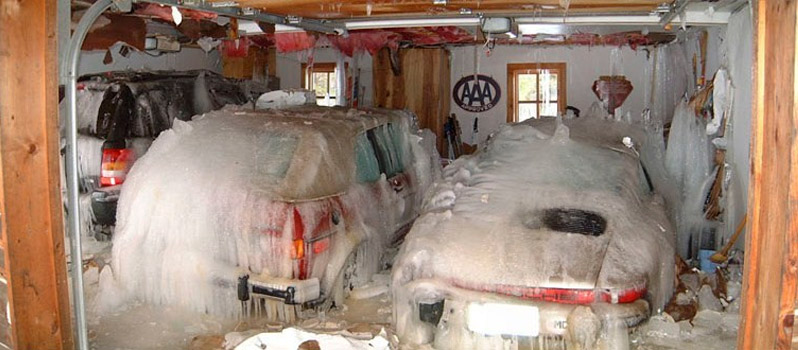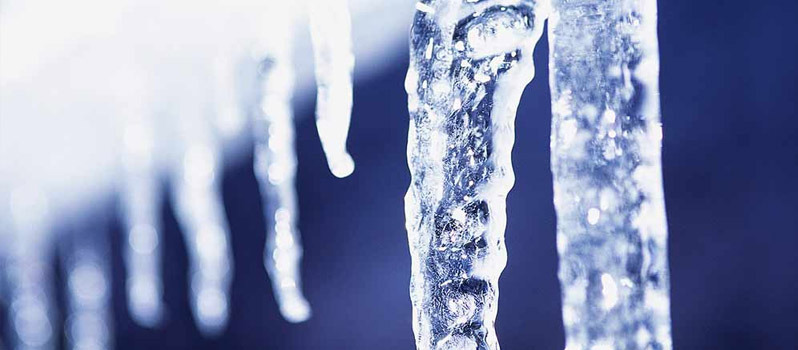When outdoor temperatures plummet below freezing exposed water pipes can be at a high risk of shattering. A pipe burst can leave a homeowner without water for an extended period of time, result in expensive plumbing bills, and waste gallons and gallons of water. Most people think the pipe burst is the result of ice swelling inside the pipes. You may be surprised to learn the rupture is actually caused by pressure from the unfrozen water between the ice and the closed faucet.
We organized a quick list of ways to prevent frozen pipes at your residence:
- Insulate pipes using foil or fiberglass insulation. Take special notice of pipes located near outside walls or in attics or crawl spaces where chances of freezing are greatest.
- Seal air leaks surrounding or near pipes. Exposure to the elements is what causes the issues in the first place. Keep the cold air out.
- If you have water supply lines in your garage make sure to keep the garage door closed.
- Turn off the water to all exterior faucets and irrigation systems. Disconnect all outdoor hoses.
- In your bathroom and kitchens open the cabinet doors to allow warmer air to circulate around the plumbing.
- If you are leaving town set the heat at 55 degrees.
- Allow both hot and cold faucets near outside walls to be opened just enough for a small trickle of water to run through the night.
- Know the locations of all shutoff valves so that you are fully prepared to stop the flow of water in case a pipe does burst.

What to do if pipes freeze:
- Open all faucets.
- Remove pipe insulation and wrap in towels or rags. Proceed to pour warm water onto wrapped areas
- If all else fails call a local plumber
What to do if pipes burst:
- Shut off the water as fast as possible to prevent additional damage.
- Take care to avoid electrical shock when working around standing water.
- Take an inventory with photos of the damaged property and possession for the insurance comapny.
- Contact your local claims office to help you locate a vendor specializing in emergency water mitigation services that can properly dry out the damaged area
- Review your coverage. Homeowner and renter policies pay for property repair but not for the fees charged by the plumber. In some cases, the insurance company may pay for debris removal and for temporary additional living expenses if you have to relocate.
- Some homeowner policies require you to make temporary repairs to protect your property from further damage. Know your policy.
- Do not make permanent repairs until an insurance adjuster inspects the damage, as an insurance company may deny a claim if permanent repairs are made before the adjuster’s visit.
Before each winter inspect your home and know which locations could be susceptible to pipe burst damage. Being prepared and following the steps to prevent frozen pipes will help you avoid a catastrophic event. Have any other tips? Share them in the comments below.








Comments are closed.